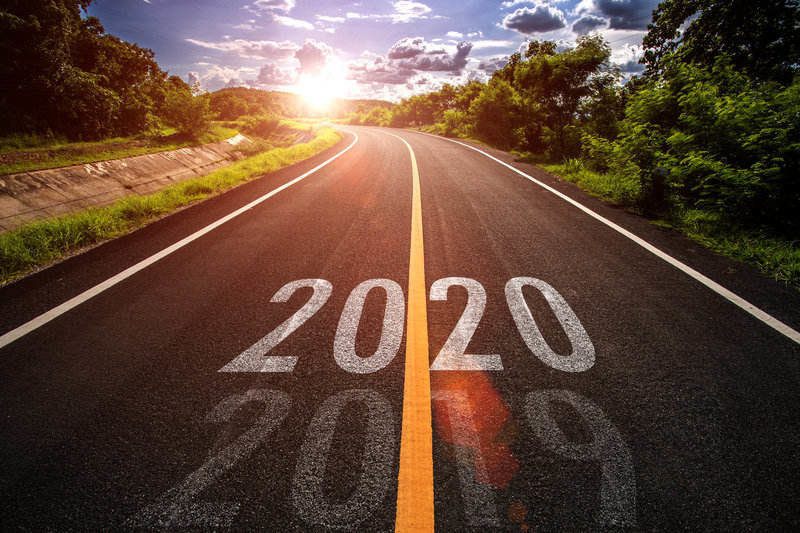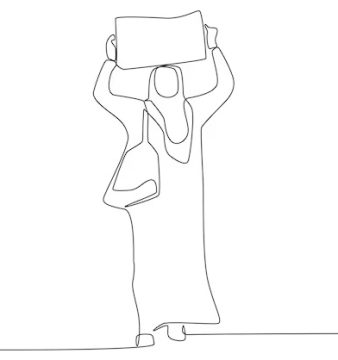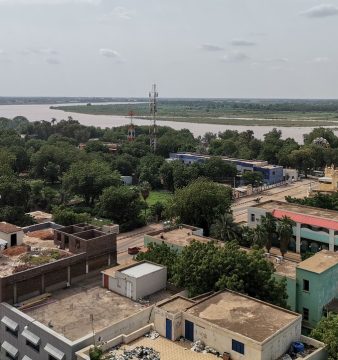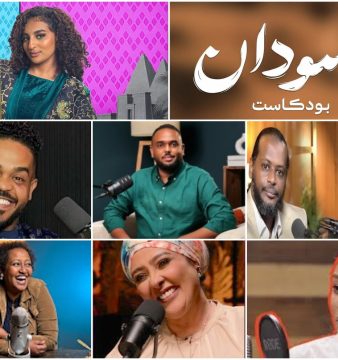2020: A Year of Exceptionally Unfortunate Events?

In December 2018, Sudanese citizens rose against the authoritarian regime of former Sudanese President Omar Al Bashir, who ruled Sudan for nearly 30 years. On 11 April 2019, the revolution succeeded in toppling Al Bashir when he was deposed in a coup d’état. In August 2019, a new government came into place where Prime Minister Abdalla Hamdok was sworn in to lead the country along with an 11-member joint civilian-military Sovereign Council until democratic elections take place in 2022. Regardless, 2019 was marked by violence and unrest across the country.
People wished that 2020 would bring peace, freedom, and justice following the loss of hundreds of lives of protesters. However, six months into 2020, peace and freedom have not yet been achieved and justice has not been served. The year saw escalated political and economic tensions, and a global pandemic and other catastrophes threaten life in Sudan and around the world.
January. First signs.
The year 2020 began with escalating tensions between Iran and the US as well as Iraq after US President Donald Trump accused Iran of aiding and abetting terrorism. Missiles were fired when the Islamic Revolutionary Guard Corps (IRGC) launched missile attacks against two Iraqi military bases housing US soldiers in retaliation for the killing of Iranian major general of IRGC, Qasem Soleimani on 3 January 2020 – the closest to the brink of war between the two nations in decades, leaving millions around the world in fear of a third World War.
In another part of the world, a newly discovered disease now known as the coronavirus (COVID-19) was wreaking havoc first in China and then spread around the world, infecting over 10 million people and taking the lives of at least 500,000 people. When the virus first broke out in China in December 2019, Sudan and Africa as a whole was still unaffected. Ergo, there was no concern among the general public.
February. Repercussions of poor management.
Shortly after tension loosened on the eastern front, Sudanese turned to discover a long-standing court case against the government regarding explosions in US embassies in Tanzania and Kenya, with demands of damage compensation from affected families estimated at billions of dollars. The US represented by Tibor Nagy, the US Assistant Secretary of State for African Affairs, rushed to deem the resolution of the case a necessary step towards removing Sudan’s name from the US list of State Sponsors of Terrorism. Despite repeated promises and reassurance from the US Secretary of State Mike Pompeo, the issue turned out to be more complicated than expected.
Ministers and cabinet members were holding consecutive supreme meetings. Each time something new was discovered. Embezzlement here, under-wraps theft there. It was a true testimonial to the new transitional government’s capabilities. In attempt to revive the country, after 30 years of destruction, the Empowerment Elimination, Anti-Corruption, and Funds Recovery Committee, which was established in November 2019, held their first public conference on 7 February 2020. The committee specialises in retaining Sudan’s embezzled resources and ridding the country of the legacy of the Al Bashir’s regime. In a matter of days since formation, massive records of money laundry, false appointment, and misconduct were found.
March. Beginning of Lockdown.
By March 2020, people started to feel a bit of a breather. Minister of Finance Dr Ibrahim El-Badawi made a deal with World Food Programme (WFP) to secure hard currency. A deal that saw general contention among the public, following a record grain harvest in the past agricultural winter season. On 12 March, the first suspected case of COVID-19 was registered. Three days later, Hamdok declared a state of medical emergency and enforced a curfew starting from 8 pm until 6 am. It was up to the Sudanese public yet again to attempt to save their country and its citizens from risk of illness and contagion. Attempts were successful in the beginning keeping the infection rate low.
On another note, FIFA, the highest international governing body of football, has decided after consulting with national federations following the infection of millions to pause tournaments and leagues until further notice. A decision that despite being imperative, has been met with upset and contempt. Other associations of sports followed.
April. The slippery slope.
As many countries around the world reported high numbers of casualties, Sudan, with its weak healthcare system, attempted to curb the spread of COVID-19 . However, the first case was registered mid-March 2020. After successfully maintaining a lot rate of infection the first month, large numbers of infected people began to be reported only a month after. Sudan reached the 100 mark on 21 April 2020, and cases kept on increasing ever since. With the negligence of people and continuing their daily lives normally, going out and gathering in public places, protective measures against the disease failed and infection numbers rocketed.
In April, tensions began to escalate between Sudan, Ethiopia and Egypt after negotiations over Africa’s largest hydro-electric project and dam, Grand Ethiopian Renaissance Dam (GERD), were renewed. Ethiopia will begin filling the dam, which has been in construction since 2011, in July 2020. For Ethiopia, the dam will produce 6,000 megawatts of electricity, more than double Ethiopia’s output today, but many are skeptical about its effect on Egypt and Sudan, leaving many citizens of the three nations concerned.
May. A turbulent period.
Protection measures against the disease in Sudan continues to fail and infection numbers rocket, surpassing the 1,000 mark. Pro-Al Bashier protests appear and march in the streets of Khartoum calling for restoration of the previous regime and the fall of the current government – with no regard to lockdown or social distancing. It was a sight that felt heavy on the chests of those who led and supported the revolution, but understood the necessity to show respect for political expression and democracy. The public condemned the lenience of local forces in dispersing the protests, which was different to what they had faced – no batons were used and tear gas was not heavily used. This ignited the first sparks of disappointment with the sovereign government. Voices calling for a second wave of protests appeared as well.
By the end of May 2020, infection rates multiplied, fast approaching the 5,000 mark. Complete lack of personal protective equipment for medical personnel was another challenge. Along with severe shortage of medication, the medical system in the country was verging total collapse. Health Minister Dr Akram Altom has stated that Sudan’s health system is severely fragile to deal with the pandemic and continuously instructed the public to take the necessary health and safety precautions.
June. The middle point.
Globally, new reports of various catastrophes continue to come. The news became a cause of discomfort as people started to accommodate themselves a bit to hearing or seeing a new horror approaching. This gave room for fabricated news to broadcast and to some extent believed as no one – due to absolute dismay – can determine if what they just learnt is true or false. More worrying news began to circulate such as UFOs, wildfires, another Ebola outbreak, or an approaching meteor with potential to destroy the planet and life as it is – only for it to divert course at the last minute. Some started to think that human race can become extinct at any moment and that total annihilation is just around the corner.
But it is far from over. On 25 May 2020, a shocking video of a white police officer placing his knee on the neck of a black man named George Floyd during an arrest, and as a result killing him, in Minneapolis went viral, served as the last straw in the eternal battle against racism in the US. His murder by police reignited the Black Lives Matter movement in the US and across the world. By June 2020, the country is flooded with protests of angry citizens of various colours and racial backgrounds. This ignited a global movement against racism, oppression, and false use of power and authority. Many members of the Sudanese diaspora in the US and abroad are seen demonstrating, holding the Sudanese flag, and signs demanding justice for the fallen martyrs. Some others perceived the situation as a good chance to transfer knowledge regarding peaceful protests and making demands in a respectable manner and showing solidarity.
The world seems like a one place at the moment with every country fighting the same battle, suffering from a pandemic, weak healthcare systems, falling economies as well as racism and more.
This also indirectly added a new factor to the equation of seeking a better life. As some in Sudan are currently weighing their options, trying to determine the best location to migrate to.
What’s next?!
The future is unknown. Some of the world’s most powerful countries were left in ruins after outbreak of the ongoing virus. Economies and natural resources plummeted. Governments have been on high alert for six months now and counting. In some cases, remote work did not suffice in covering for actual on-site work. In countries still in lockdown such as Sudan, people are growing impatient of having to stay at home.
However, the world is opening up again. Many countries are easing restrictions and beginning to slowly return to normalcy. In sectors such as sports entertainment, football and basketball matches are returning, and other sport matches are to follow. By the end of the summer, countries around the world are expected to return to order; however, remaining cautious of the pandemic.

Tony Malik is a 27-year-old IT graduate of National Ribat University (Class of 2013), residing in Sudan and the UAE. His professional background includes marketing, IT, writing & translation, and business administration. He is a former writer for Sudan365.net and Goethe Institute-Sudan, and a member of German-Sudanese cooperation group.




